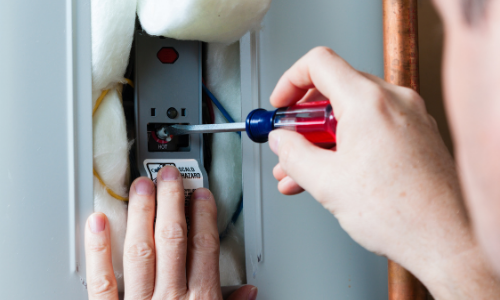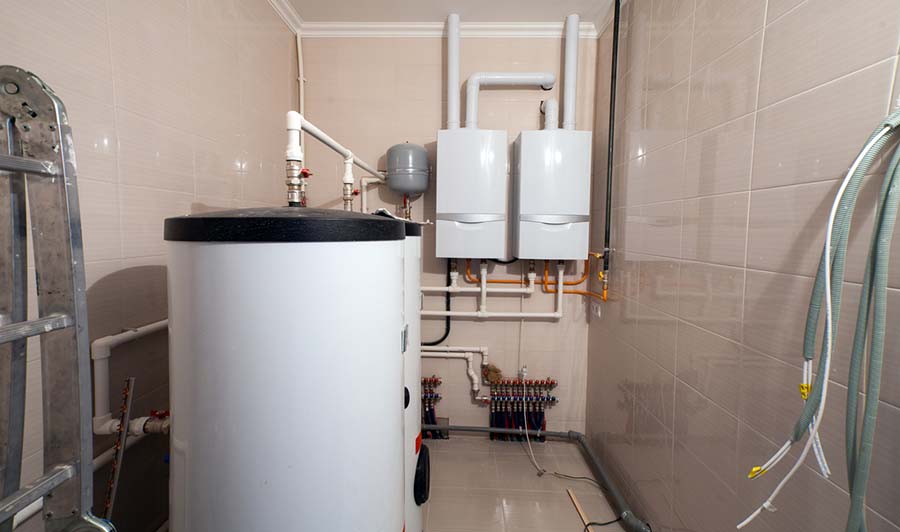Addressing the Most Frequent Hot Water Heater Emergencies
Addressing the Most Frequent Hot Water Heater Emergencies
Blog Article
Just how do you really feel when it comes to The Importance of Water Heater Maintenance?

A water heater is among the most essential standard appliances that can be discovered in a residence. With water heaters, you don't require to experience the tension of home heating water by hand every time there is a need to wash, wash, or the dishes. Nevertheless, there is constantly a possibility that your water heater would certainly act up similar to many mechanical devices.
It is very important to keep in mind any type of little malfunction and tackle it quickly prior to points get out of hand. Most times, your hot water heater begins to malfunction when there is a build-up of debris as a result of constant use. As a preventative measure, regular flushing of your water heater is advised to avoid debris accumulation and also stop functional failure.
Usual water heater emergency situations and just how to deal with them
Insufficient warm water
It might be that the water heating system can not sustain the warm water need for your home. You could update your water heating system to one with a larger ability.
Fluctuating water temperature.
Your water heater can start generating water of different temperatures typically ice scalding or cold hot. There may be a demand to change either the heating or the thermostat system of your water heater.
Leaking water heater storage tank.
In this circumstance, you must transform off your water heating system, permit it to cool down, and also meticulously look for the resource of the issue. At times, all you need to do is to tighten a few screws or pipeline links in instances of minor leaks. If this doesn't function and the leak lingers, you may need to use the solutions of a specialist for an appropriate substitute.
Stained or stinky water
When this occurs, you require to understand if the issue is from the container or the water resource. If there is no funny odor when you run chilly water, then you are certain that it is your water heater that is faulty. The smelly water can be created by corrosion or the build-up of microorganisms or debris in the water heating system tank.
Final thought
Some home owners overlook little caution and minor faults in their hot water heater unit. This only results in additional damage and a possible complete breakdown of your appliance. You need to manage your hot water heater mistakes as soon as they come up to stay clear of even more costs and unneeded emergency difficulties.
With water heaters, you do not require to go through the stress and anxiety of home heating water manually every time there is a demand to take a bath, do the washing, or the meals. It may be that the water heating unit can't sustain the hot water demand for your home. Your water heating unit can start generating water of different temperatures generally ice hot or cold hot. If there is no amusing scent when you run cold water, after that you are certain that it is your water heating unit that is defective. The odiferous water can be caused by rust or the accumulation of microorganisms or sediments in the water heating system tank.
Common Water Heater Issues and What You Should Do
What Type of Water Heater Do You Have?
Before we begin it’s first important that you identify the type of water heater you have on your property. There are two main types of water heaters out there: conventional and high efficiency.
Both of these types of products typically use either gas or electricity to heat power. There are also solar water heaters that use a thermal collector on the roof or yard to heat the water.
While these models are not as common, they can cut heating costs in half. In this article, we will focus on conventional and high efficiency.
How Do My Electric and Gas Water Heater Work?
Though they look similar, electric and gas water heaters work very differently. It’s important to know their basic function because often problems can be specific to the heating source.
In the electric model, a thermostat on the side of the machine detects the temperature of the water in the tank. When the temperature needs to rise electricity flows to a heating element suspended in the water.
Gas models also use a thermostat device — typically with a mercury sensor at the tip and an additional sensor called a thermocouple. The thermocouple detects whether the pilot light is on and controls the flow of gas.
When the thermostat drops below the appropriate level gas is released which becomes ignited by the pilot light. The flame heats the bottom of the water tank which causes hot water to rise and cold water to drop.
This natural circulation continues until the water reaches the desired temperature. Then, the thermostat triggers the gas control valve to shut off the flow of gas.
What Are the Most Common Issues and How Do You Fix Them?
https://happyhiller.com/blog/common-water-heater-issues-and-what-you-should-do/

As a fervent reader on Is Your Water Heater Leaking?, I thought sharing that piece of content was worthwhile. If you enjoyed reading our post plz don't forget to share it. We thank you for reading our article about Common Hot Water Heater Problems.
Instant help? Contact. Report this page